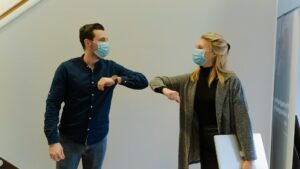Church staff approach the beginning of a program year with enthusiasm and energy, but as the year winds down, this often gives way to malaise and exhaustion. Staff rely on the summer months for revitalization before the cycle begins anew. This cycle of overwork, exhaustion and renewal has never been healthy, but during the pandemic, the summer hiatus has not offset months of overwork and stress. Many staff are running on empty—already burned out while the program year is still new.
It’s time to break the burnout cycle by instituting healthy, sustainable church workplace practices.







